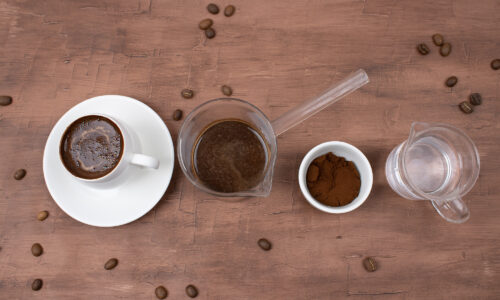In recent years, we’ve seen a surge in health-conscious consumers seeking alternatives to traditional caffeinated beverages. Caffeine-Free Coffee Alternatives have become increasingly popular, providing the same rich flavor and warmth of coffee without the side effects of caffeine. In this article, we’ll explore a variety of caffeine-free alternatives, discuss their benefits, and provide tips on how to enjoy them.
Herbal Coffee
Herbal coffee is a natural caffeine-free alternative made from a blend of herbs, fruits, and grains. Chicory root, dandelion, and barley are common ingredients that give herbal coffee its rich, earthy flavor.
Chicory Root
Chicory root is a popular choice for caffeine-free coffee alternatives because it closely resembles the flavor of coffee. Rich in inulin, a prebiotic fiber, chicory root promotes gut health and supports digestion.
Dandelion
Dandelion root is another excellent substitute for coffee, with a slightly bitter taste and a range of health benefits, such as promoting liver health and providing antioxidants.
Grain Coffee
Grain coffee, made from roasted grains like barley, rye, and oats, offers a caffeine-free, smooth, and mild coffee-like experience.
Barley Coffee
Barley coffee is a popular choice in Italy and other parts of Europe. With its nutty and slightly sweet flavor, barley coffee is rich in fiber and minerals.
Rye Coffee
Rye coffee, with its slightly spicy flavor profile, is an exciting alternative to traditional coffee. Like barley coffee, it is rich in nutrients and fiber.
Tea-Based Alternatives
Tea-based alternatives provide a wide range of flavors and health benefits, making them an excellent choice for those seeking a caffeine-free coffee alternative.
Roasted Herbal Tea
Roasted herbal teas, such as roasted dandelion or chicory root, offer a robust and earthy flavor profile similar to coffee.
Rooibos Tea
Rooibos tea, also known as red bush tea, is a naturally caffeine-free herbal tea from South Africa. With a mild, slightly sweet flavor, rooibos tea is rich in antioxidants and minerals.
Nut-Based Beverages
Nut-based beverages provide a unique, creamy alternative to traditional coffee, with a variety of flavors to suit different preferences.
Almond Coffee
Almond coffee is a blend of ground almonds, spices, and natural sweeteners, offering a warm, nutty flavor reminiscent of coffee.
Hazelnut Coffee
Hazelnut coffee provides a rich, aromatic, and slightly sweet coffee alternative. Made from ground hazelnuts, this beverage can be enjoyed hot or cold.
Cocoa and Carob Drinks
Cocoa and carob drinks offer a naturally sweet, chocolatey alternative to coffee without the caffeine.
Hot Cocoa
Hot cocoa, made from cocoa powder, provides a rich and comforting beverage that can be enjoyed any time of day.
Carob Powder
Carob powder, derived from the carob tree, offers a naturally sweet and caffeine-free alternative to cocoa powder. It can be used in place of cocoa in various recipes and beverages.
Caffeine-free coffee alternatives are a fantastic way to enjoy the warmth and flavor of coffee without the potential side effects of caffeine. Whether you choose herbal, grain, tea-based, nut-based, or cocoa and carob drinks, there’s an option to suit every palate. Embrace the world of caffeine-free alternatives and discover a new favorite beverage today.
Frequently Asked Questions
1. Can caffeine-free coffee alternatives provide the same energy boost as regular coffee?
While caffeine-free alternatives do not contain the stimulating effects of caffeine, they can still provide a sense of warmth, comfort, and satisfaction, helping you feel more alert and energized.
2. Are caffeine-free coffee alternatives suitable for people with allergies or dietary restrictions?
Many caffeine-free alternatives are made from natural ingredients and are free from common allergens. However, it’s essential to check the ingredients list and consult with a healthcare professional if you have any concerns.
3. Can I use caffeine-free coffee alternatives in my regular coffee maker?
Some alternatives, like grain coffee or herbal coffee, can be brewed using a standard coffee maker. Others, like nut-based or cocoa beverages, may require different preparation methods.
4. Are caffeine-free coffee alternatives more environmentally friendly than traditional coffee?
Some alternatives, such as herbal or grain coffee, have a smaller environmental footprint compared to coffee cultivation. However, factors like production methods and transportation can also impact the overall environmental impact.
5. Can I mix caffeine-free coffee alternatives with regular coffee to reduce my caffeine intake?
Yes, you can combine caffeine-free alternatives with regular coffee to create a blend with reduced caffeine content. This is an excellent way to gradually reduce your caffeine intake while still enjoying the flavor of coffee.





As someone who’s trying to cut down on caffeine, I found this article to be really helpful. The suggested alternatives like chicory root and herbal teas are great substitutes that still provide a nice energy boost without the jitters. Thanks for sharing!
Thanks for sharing these caffeine-free coffee alternatives. As someone who is trying to reduce my caffeine intake, I appreciate having more options. I especially love the idea of trying herbal teas and chicory coffee. Can’t wait to give these a try!